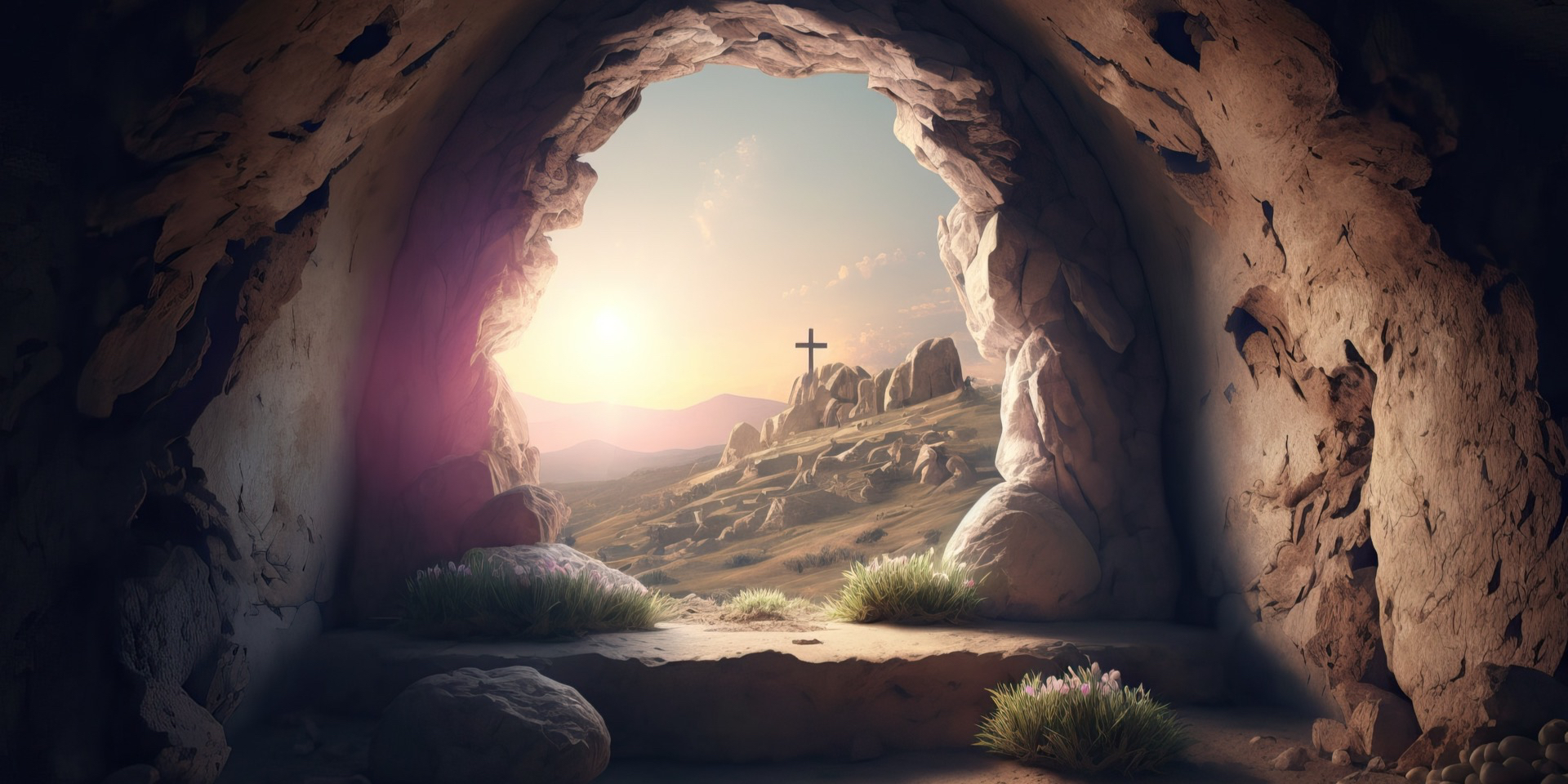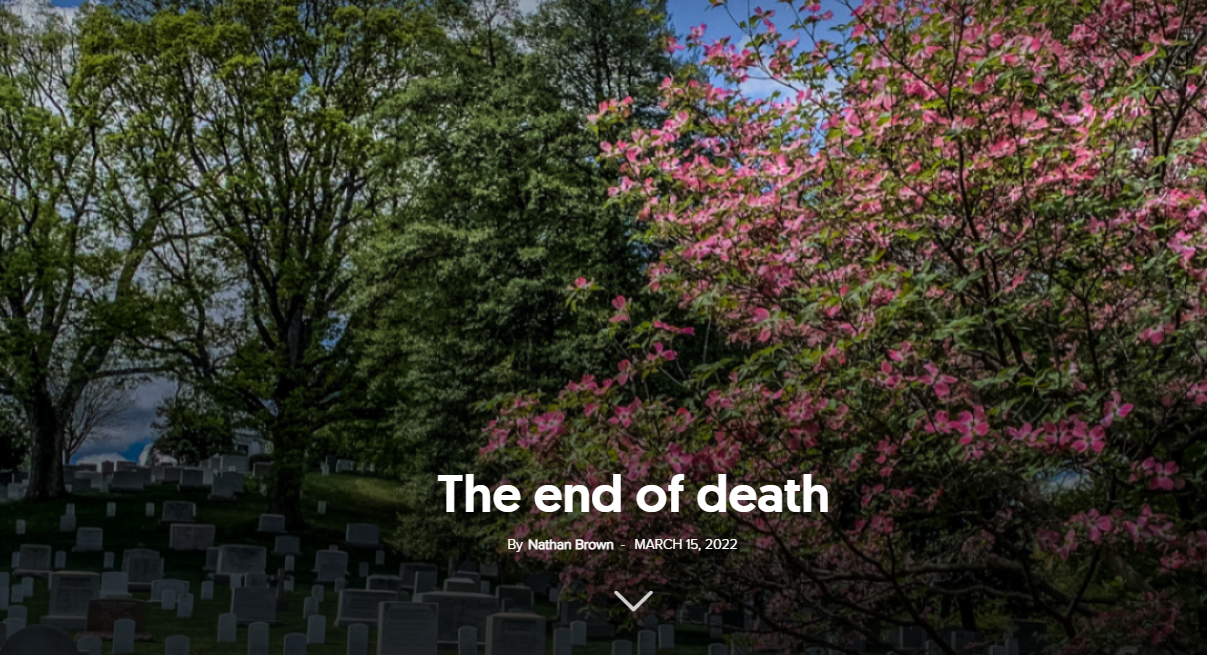By the year 2022, I had not lost anyone close to me, but I had the feeling, as never before, that death was approaching with unexpected speed. The war that was taking place to the east of Romania, and the news that we were in second place in the world in terms of the number of deaths per thousand inhabitants, made me think seriously about how ephemeral we are—ephemeral and egotistical.
Mankind has always tried to find solutions to the mystery of death. Every religion has claimed to know what lies beyond visible existence, and has tried to ease the pain of parting with comfortable illusions and assumptions. Roughly speaking, we could say that we are offered three main perspectives on death.
The first, and perhaps the most common, is that something of us continues to exist after death, either in a happy place, an unhappy place, or simply in another form of life. The idea of an immortal soul seems to be the common denominator of most religions in the world.
Sceptics, on the other hand, believe that there is only what can be observed, so this life is the only one we know and therefore the only one available. What comes next? Nothing. While such an approach does not easily provide answers to existential dilemmas about the meaning of life, it is the common position of those who claim that science is the only true faith.
On the other hand, the Bible offers a unique and incredibly logical perspective—the resurrection. For me, this is the light that can guide us through the times of doubt and uncertainty. And I will explain why.
The resurrection is a new creation
The image with which the Bible begins is that of the Creator God. He is the One who “spoke, and it came to be; He commanded, and it stood firm” (Psalm 33:9)—no battles between gods, as in ancient religions, no mistakes. Everything is calm and quiet, disturbed only by the still breeze of the Spirit of God “hovering over the waters” (Genesis 1:2).
In this absolute silence, the Creator begins to bring about the harmony of clouds, flowers, birds, stars and animals, completed at the end by the presence of humans. In the biblical description of creation, humans become a living soul, without having a pre-existing one (Genesis 2:7). There is nothing in the description of the creation of man or woman to suggest that anything conscious in them had a previous life.
Everything is new, born out of that absolute silence in which nothing was heard except the word of God who “spoke.” Humans existed only in the mind of God before being shaped by Him. And the same Word that brought the whole world into being proclaimed that on the day that humans chose to eat the fruit of the forbidden tree, they would “certainly die” (Genesis 2:17). It seems logical, then, that if humans chose to disobey, they would suffer the consequences of their choice. However, as they left paradise in tears, the Creator reminded them that their mistake would be avenged by one of their descendants, who would eventually crush the head of the serpent who had tempted them (Genesis 3:15).
There was no promise at the gate of Eden that the human soul would hurry home after death. Even Abel’s blood, foolishly shed by Cain after a relatively short time, “cried out” to God “from the ground,” not from heaven (Genesis 4:10).
Yet God has left people with one great hope, the hope of resurrection. And to make sure they did not forget it, He wrote it all around them.
In the trees that come back to life after losing their leaves, in the seeds that “die” in the furrow but “rise again” to produce the same kind of plant, God recreates nature every spring, giving us a practical lesson in His power. Nothing is too difficult for Him. To accept the biblical view of the origin of life is to believe in His power to bring back to life those who are no longer with us, just as He brings back to life the nature around us.
This is exactly what Abraham believed. When God asked him to sacrifice his son, whom he knew would become the father of a generation as numerous as the stars in the sky, he did not hesitate to obey the command because he “reasoned that God could even raise the dead” (Hebrews 11:19). He believed this even though no one had yet ever been miraculously brought back to life.
Paul would expand on this symbolism and argue that a new life, transformed by God’s power, is also a symbol of resurrection. In other words, if the gospel can transform an unbeliever obsessed with doing evil into a moral and God-loving person, it means that the same power can bring those in the dust of the earth to life (Galatians 2:20).
The resurrection is proof of God’s love for us
When people chose to disobey God’s command, Scripture says that God decided to intervene and stop their access to the Tree of Life, the only thing that could guarantee their life (Genesis 3:22). Evidently, there was nothing miraculous about the tree. The biblical statement conveys the idea that in a world of sin, death is not just a curse.
God was able to place a blessing even into the tragedy of death that has polluted this earth. This is why the Bible compares death to sleep, not a transition to another world (John 11:11). Like someone resting after a hard day’s work, the dead “know nothing” as they wait for the day when God will call them to life (Ecclesiastes 9:5). And just as in sleep we are completely cut off from what happens around us, so the dead share nothing in the life of the living: neither their sorrows nor their joys. This is exactly what the first Christians believed when they wrote in the Creed of the Christian faith, first of all, “I look forward to the resurrection of the dead,” and then, “to the life of the world to come”. The biblical view of the resurrection remains the most loving solution to the mystery of death.
The resurrection is proof that God does not forget those who are His own and that His love for them does not fade. That is why the Bible says that “for Him all are alive” (Luke 20:38), not because their souls are alive somewhere, but because He has the power to call them to life, as if to wake them from sleep. He is concerned with the salvation of the human being as a whole, because in the biblical view, there is life for humans only in bodily form. In the Bible, man is man only when he is whole.
The resurrection is proof that death will disappear
Through the resurrection, God will demonstrate His power to destroy death forever. This truth was proven by the resurrection of Jesus, but it will be fully realised at the end of history when “the last enemy to be destroyed is death” (1 Corinthians 15:26).
The Bible says over and over again that after all people have been resurrected, after everyone’s choice of life or death has been recognised, ” there will be no more death.” And with it, all its suffering baggage will be over; there will be no more “mourning or crying or pain” (Revelation 21:4). This will be the seal of God’s sovereignty, power, justice and eternal love. Any other variation on what lies beyond death is a way of somehow diminishing His power. For example, a God who would create an eternal hell for those who have sinned for a few years is an unjust and vain God, not a just and loving one.
The theory of the immortal soul, popularised by Greek philosophers but now present throughout the world, is essentially a disguised dualism—evil cannot be destroyed, so it will exist forever in one form or another. In other words, God not only doesn’t stop evil, but creates a framework—eternal hell, as most Christians see it— in which evil can continue forever. But this idea contradicts the revelation of Scripture that God “alone is immortal” and is the one who “will swallow up death forever” (1 Timothy 6:16; Isaiah 25:8).
The Bible explains that there will be a resurrection of the righteous and the unrighteous, that some will receive the eternal life they have been waiting for and others will receive eternal punishment based on their own choices, but in the end only Paradise will be eternal, not hell.
The loss of Paradise will be the greatest sorrow of those who have chosen to disobey God. Just as the righteous will enjoy the Paradise prepared by Jesus, the wicked will endure the final fire prepared for the devil and his angels (John 14:2; Matthew 25:41). But the resurrection is proof that death, however hard and painful, will one day be finally defeated by the One who defeated it when He raised His Son from the dead.
Today, it is hard to find a movie that does not somehow suggest that dying is only a gentle passage to another, more beautiful and happier life. We are told in the news that actors who die go to act in heaven, that pastors go to preach there, that athletes go to compete on the golden streets of paradise… But all this only takes away from the beauty of God’s character.
For me, in 2023, God remains the God of Resurrection, the One who calls nature to life every spring and all human hearts to life everyday, and the One who awakens from the sleep of death all those who went to sleep waiting for Him. This image is so simple, logical, and loving that I wish it would be dear to every reader.
For Adrian Neagu, the resurrection is the most beautiful proof of God’s love for humanity.




















